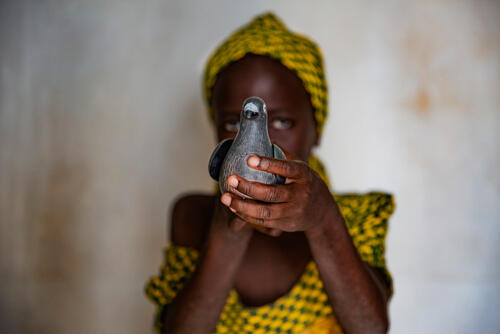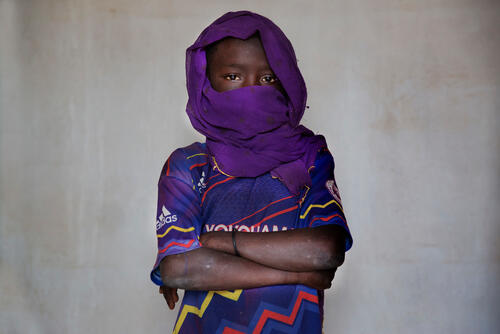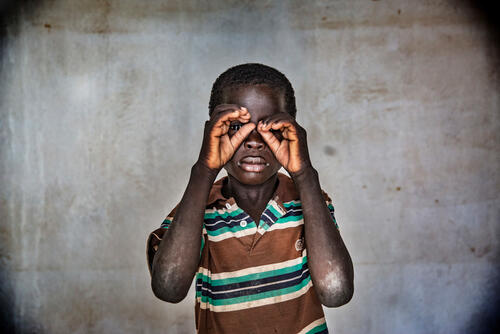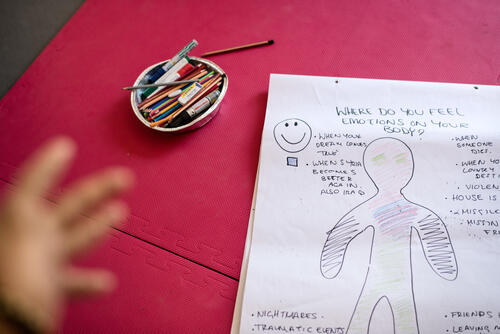Aïcha is nine years old. She lives in Kindjandi displacement camp, in Diffa, southeast Niger, by the shores of Lake Chad.
Aïcha is one of the 250,000 people – refugees, internally displaced people and returnees – who have sought refuge in Diffa, fleeing conflict between non-state armed groups and military forces in the region.
The vast majority of these people live in camps like Kindjandi, where they struggle to reach even the most basic services. According to UNICEF, about 70 per cent of them are children.
Aïcha’s mother Fatsouma tells MSF her story: “The armed group attacked our small village and forced us to flee. We heard gunshots, and one of our cousins was hit by a stray bullet when we tried to escape. Here, Aïcha stopped playing and was always sitting alone. She found it hard to eat and was losing weight. She had nightmares which woke her up. She would get up and run, fleeing the village, and I had to run after her.”
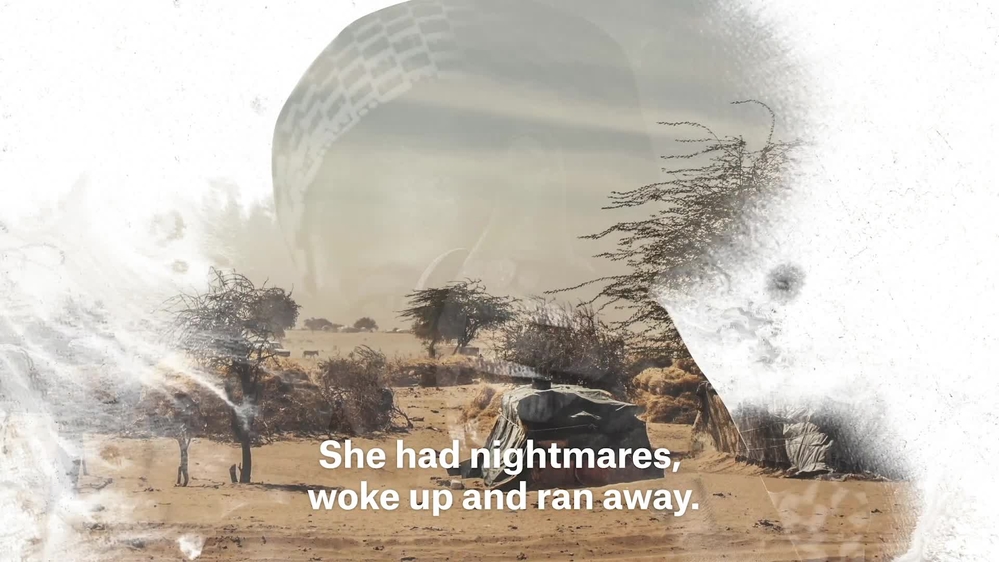
Aïcha’s story
Aïcha’ story and those of the thousands of children who have sought refuge in Diffa are strikingly similar.
Victims or witnesses of acts of violence perpetrated by armed groups – kidnapped, separated from their families or forced to flee – they have all experienced loss and fear.
Even though they have found relative safety in Diffa, many of these children continue to relive traumatic events.
The invisible scars of war
Children and adolescents, victims of the conflict across the Lake Chad region, have to deal with tough situations and painful memories, while they have not yet developed coping mechanisms that would allow them to deal with their suffering.
They often develop post-traumatic stress disorder or depression. Symptoms vary and may include intense nervousness and anxiety; constant fear and hypervigilance; apathy and abstinence; lack of appetite; regressive or aggressive behaviour, nightmares and re-enacting traumatic situations when they play.
In humanitarian crises, mental health and psychosocial care for children are usually an invisible need that remains unmet, even though the risk of developing a mental disorder often traces back to childhood.
MSF is running a mental health and psychosocial support programme for children and adolescents in Diffa, to prevent possible psychological and social repercussions following the traumatic events they have experienced.
By building community awareness, integrating health centres with psychosocial care programmes and running various psychological care programmes, the team is trying to make mental health an integral part of healthcare provision in the region.
To integrate more young patients into MSF’s mental health and psychosocial programme in Diffa, our teams have trained 100 community workers to identify the most frequent symptoms of mental health problems.
Thanks to this strategy, the number of children assisted by MSF has rapidly increased. Between March and June 2018, we carried out approximately 700 consultations to children under 14-years-old.
The trauma they have gone through can affect many different mental functions.Yacouba Harouna, psychologist in Diffa
Playing to heal
“To help these children, we help them play. The trauma they have gone through can affect many different mental functions. By encouraging children to play, we not only allow them to express themselves, but also support their normal development,” explains Yacouba Harouna, a local psychologist and supervisor of MSF's mental health activities in Diffa.
In 2017, less than 10 per cent of patients assisted by MSF’s mental health team in Diffa were children; in the first half of 2018, this had risen to 35 per cent.
Many patients have improved after receiving mental health treatment. Aïcha is also feeling better. “The programme has helped her a lot. She doesn’t have nightmares any more, and now she goes out to play with her friends,” explains her mother.
But while the programme helps children to overcome the trauma they have experienced, the underlying reasons for their mental suffering are still there.
“Unfortunately, the situation in Diffa has not yet normalised. There are still attacks in the camps, so the conflict is still present every day for children and adolescents. In addition, the lack of means and the uncertainty about the future weigh heavily on many families; without money or possibilities to work, many people are totally dependent on humanitarian aid.” explains Francisco Otero y Villar, MSF’s head of mission in Niger.
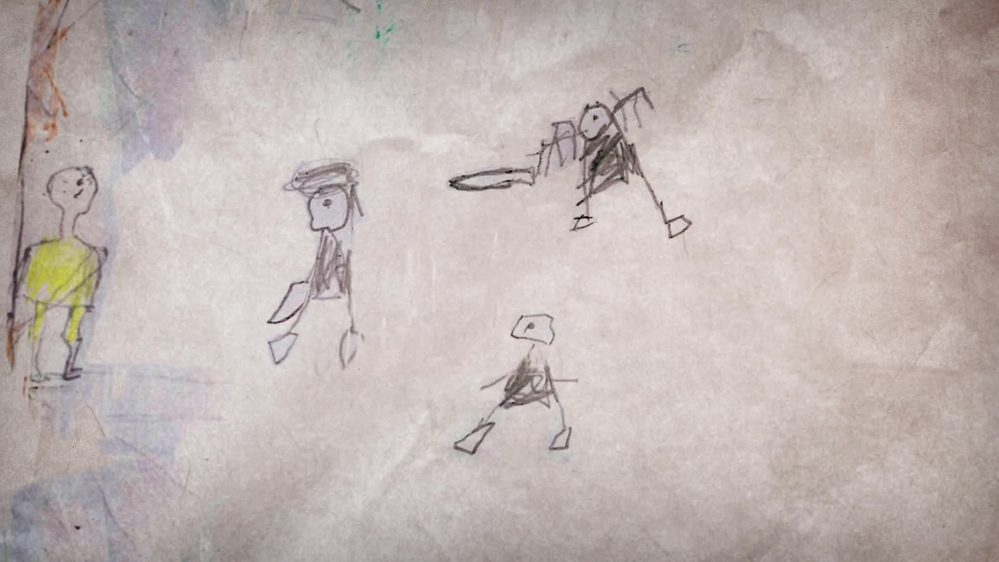
Drawings done by children in Diffa
How colour boxes are helping children in Diffa
The strokes and colours look just like any other child’s drawing. But the scenes that the displaced children in Diffa paint are different: airstrikes, people killed with firearms, burning houses, people fleeing. Their drawings highlight the horrific trauma of the conflict they have lived through.
Drawing is among the key tools used in mental health programmes for children. Through drawing, mental health specialists can start to understand the psychological experience of a child and help them to get better.
But drawing is also a way for children to more easily express their feelings related to traumatic experiences and help them to visualise and verbalise their pain – the first step to overcoming trauma.



